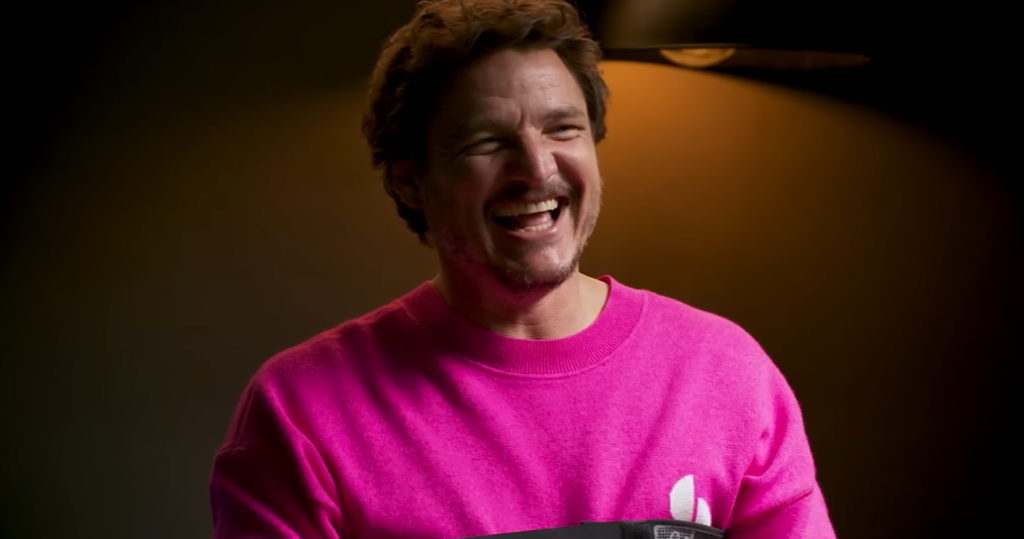An actor whose on-screen persona feels eerily familiar but whose private life is purposefully kept out of reach, Pedro Pascal has come to represent charismatic mystery. One question lingers in fan forums and on the red carpet despite Pedro Pascal’s quick ascent, which was fueled by his iconic roles in The Mandalorian, Narcos, and The Last of Us: who is his wife? The actor and those close to him have repeatedly stated the surprisingly straightforward response: he doesn’t have one.
Recent days have seen a resurgence of rumors on social media that connect Pascal to actresses he has collaborated with or appeared with, driven by fan speculation and nostalgic flashbacks. Game of Thrones co-star Lena Headey, whose playful Instagram posts and undeniable chemistry with Pascal once sparked speculation, continues to be the subject of the most persistent rumors. Headey has since moved on with actor Marc Menchaca, but neither of them ever acknowledged a romantic relationship. Such conjecture frequently surpasses reality in the context of contemporary celebrity, particularly when emotional depth is frequently confused with romantic involvement.
Pedro Pascal – Personal and Career Overview
| Attribute | Detail |
|---|---|
| Full Name | José Pedro Balmaceda Pascal |
| Date of Birth | April 2, 1975 |
| Nationality | Chilean-American |
| Profession | Actor |
| Known For | The Mandalorian, The Last of Us, Game of Thrones, Narcos |
| Marital Status | Single, never married |
| Children | None |
| Frequently Rumored Partners | Lena Headey, Maria Dizzia, Robin Tunney |
| Social Media Presence | @pascalispunk on Instagram |
| Source | Hollywood Life – Pedro Pascal Relationship History |
Pascal has continuously refrained from using his personal relationships as press material, even in the face of public demand for details. In an interview with Vanity Fair’s lie detector, he humorously admitted that he sometimes looks up his own name on social media. He finds the abundance of content that refers to him as “daddy” to be both flattering and perplexing. “Daddy is a state of mind,” he replied. When he said, “I’m your daddy,” with his trademark deadpan charm, the internet’s collective crush only grew stronger.

Pascal has unintentionally brought attention to a cultural shift by refusing to use a marital label to define himself. Celebrities are increasingly defying conventional relationship milestones, particularly those in their forties and fifties. Instead of focusing on a spouse or kids, many are exhibiting incredibly satisfying lives that revolve around intimate friendships, creative collaborations, and personal growth. Pascal’s story fits this paradigm remarkably well.
The fact that his performances are so often interpreted as mirroring emotional truths only serves to heighten the impact of this. In The Last of Us, he played Joel in a particularly complex way, battling moral dilemma, grief, and the kind of paternal loyalty that touched viewers all over the world. Pascal frequently changed the subject from personal experience to universal emotion when questioned about the emotional demands of the role in press interviews. During a Wired feature, he said, “The love you feel is connected to being human.” Even though it revealed little about his real-life relationships, that vulnerability, expressed so clearly, was remarkably effective in gaining the trust of fans.
Pascal has had to deal with rumors about his relationships with different actresses throughout his career. He was briefly associated with Maria Dizzia in the early 2000s following their appearance together in a Law & Order episode. Additional images featuring Robin Tunney, star of The Mentalist, surfaced in 2015. However, at that time, Tunney was already engaged to interior designer Nick Marmet, so any romantic involvement was highly unlikely. There was familiarity and maybe a good camera angle, but no confirmation despite repeated sightings.
What has significantly improved is Pascal’s ability to handle celebrity on his own terms, even though his dating history is still informal and frequently speculative. Unlike other actors who feel pressure to present a curated domestic life, Pascal has carved space for ambiguity. By putting his privacy first, he has transformed public absence into presence, which is a surprisingly cost-effective emotional bandwidth tactic that fans find both admirable and refreshingly contemporary.
Pedro Pascal’s decision to not get married or hard-launch a partner is especially novel in the context of celebrity culture, where relationships are commonly monetized. He has sincere friendships with his co-stars, including Bella Ramsey, Oscar Isaac, and Sarah Paulson, with whom he has a father-daughter relationship both on and off screen. These relationships convey Pascal’s values—loyalty, care, and emotional fluency—in a subtle way and feel remarkably real, frequently lasting longer than many Hollywood romances.
Not all members of the industry are able to maintain their composure in the face of growing celebrity. Pascal is a professional who has a remarkable understanding of audience dynamics, as evidenced by his cool handling of parasocial attachment and his remarkably similar approach to every public encounter—equal parts charming and evasive. He provides just enough to be adored, but not enough to be eaten.
For audiences yearning for romance, Pedro Pascal may never offer the fairy-tale wedding or arm-in-arm red carpet moment with a declared wife. Instead, though, his honesty, emotional intelligence, and subtlety feel much more substantial. In an entertainment industry where excessive sharing is common, his decision to preserve his privacy is subtly revolutionary.
From a wider, more contemporary perspective, Pascal has already reshaped what romantic fulfillment can entail, regardless of whether he ever gets married. It’s more about the kind of love one lives by doing—being kind, being present, and being remembered for the weight of your character rather than a wedding ring—than it is about making declarations.

